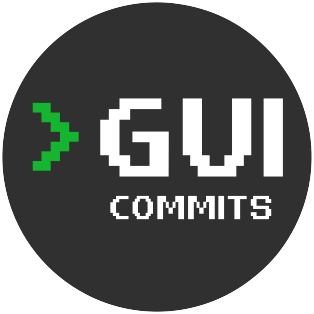Highlights: How to get rich without getting lucky
Looking around on Twitter I randomly found this tweet (brain)storm:
How to Get Rich (without getting lucky):
— Naval (@naval) May 31, 2018
And I couldn't stop thinking about how much I agree with some concepts in the tweets, and how much I enjoyed reading and thinking through them. They seem so simple and so complex at the same time.
Turns out that @naval also recorded a podcast about this tweet and a companion article with the whole interview. Then I wanted to highlight (or somehow bookmark) what caught up my attention and add some comments, so I can get back to them in the future.
The podcast is available on Spotify in case you're curious:
Finally, if you wish to read, you can head to this link.
🔖 Highlights
24:20
You’re not going to get rich renting out your time. You must own equity - a piece of a business - to gain your financial freedom.
— Naval (@naval) May 31, 2018
Even high paying jobs like lawyer and doctors, they just earn based on the hours they put in. You're always working for somebody else who is risking. They will never pay you enough because they want to pay the minimum to you help them make their business.
You're replaceable because you're doing the same things over and over again, anyone can learn what you do and do it themselves.
Who really generates wealth owns a business or a product. You want a job or career where your outputs do not match your inputs. Business with high creativity/leverage tends to be the ones that you can do 1 hour of work and produce a lot of impact instead of 10.000 hours and produce nothing.
One guy can create the bitcoin and generate a big asset, meanwhile me with "Fixdin" (a small personal side project) didn't ever produce anything.
The higher the creativity compound the more likely is to have disconnected inputs and outputs
30:00
The most dangerous things are heroine and a monthly salary because they're highly addictive.
55:00
Specific knowledge
Arm yourself with specific knowledge, accountability, and leverage.
— Naval (@naval) May 31, 2018
The most interesting things cannot be taught, but they can be learned. This is the only knowledge you care about.
You can only get specific knowledge by exploring your natural curiosity.
Often it's easy to play with your knowledge, to other people it seems like work.
64:15
Follow your obsession to build specific knowledge. Whatever you're natural at and double them, combine them!
66:35
Learn to sell and build
Learn to sell. Learn to build. If you can do both, you will be unstoppable.
— Naval (@naval) May 31, 2018
Gates and Steve
Jobs and Wozniak
They together were able to sell and build.
Having the builder skills you can learn sales skills.
This combination is unstoppable. Such people can get anything done.
Building is better than just selling.
It's a magical combination: CEO and CTO. That's the perfect combo.
72:50
The foundation of learning is reading, there's no smart person that doesn't read.
People struggle with this. Educate yourself and love to read. Who reads a lot loves to read.
You have to make sure you know the basics, if you just memorize things you're lost.
The goal is to see any book in a library and don't fear it. You know you can read any, understand, and ignore what's not true.
The means of education are abundant, the desire to learn is scarce. You gotta cultivate and never lose it.
Foundations are like principles. It's better to go slow, struggle and rewind instead of flying through it just to count how many books you already read.
79:50
The five more important techniques are:
- Reading
- Writing
- Arithmetic (Basic math)
- Persuasion (Talking)
- Computer Programming
If you're good with all these, you're set for life. Business is too broad to be a skill. You never understand it fully until you are in that position.
If you can learn basic concepts of game theory, psychology, ethics, and logic will serve you well.
81:12
The learning curve is across iterations: new experiments, constant changing branding and channels. It's not a matter of hour put in, but the number of iterations that will drive your learning speed.
Doing something new every time is painful and it makes us fail.
89:20
People who have the ability to fail in public under their own names actually gain a lot of power.
Taking risks may get you in real trouble, but you also can have rewards. That's how you build accountability. Your compensation (equity) is based on how replaceable you are.
97:00
Stay out of labor based leverage, have a minimum amount of people working with you.
Another leverage is capital, which means investing money. Capital is powerful because it can be converted to labor or even give good returns if well applied and you have specific knowledge.
The last leverage (and most important) are products that have no marginal costs of replication. You can multiply efforts without other humans or capital.
In that sense, my blog is a form of leverage, I can share ideas without needing a magazine space. New billionaires are being created by using this leverage.
101:10
You can combine these leverages, tech startups excel at it when they take the minimum and best possible labor leverage which are engineers, designers, and product.
Then you add capital for marketing/advertising and then generate content to roll out.
121:40
Your first job is to obtain leverage:
- With permission by taking risks and hiring/raising capital
- without permission with code/podcasts/content
Now you need "judgment", it's the skill to make good decisions. That's what a CEO needs to do. Warren Buffett stands out because he has a lot of accountability and has shown results and built a reputation. Nobody asks when he wakes up or how hard he works, they just rely on him to do what he does amazingly well.
If you're smart you can hold your emotions under control and operate like a "robot". Emotions mess up with your judgment. The more outraged somebody is, the worst his judgment is. He can't manage a company.
128:00
Set and enforce an aspirational personal hourly rate. If fixing a problem will save less than your hourly rate, ignore it. If outsourcing a task will cost less than your hourly rate, outsource it.
— Naval (@naval) May 31, 2018
Set really high personal hour rate. How much cost the mental hassle? Does it pay off? Stick to the important stuff. Here's an amazing youtube video (Portuguese only, sorry!) on this topic: https://www.youtube.com/watch?v=VSERTE1TO94
Great scientist were terrible at managing their household life, they focused on priorities.
Naval used to set his hourly rate 5,000 USD. If you can hire someone/outsource to less than your hourly rate, then outsource it or don't do it at all.
You can do things your way and do it right and blablabla but you won't be wealthy, that's it.
Set a very high hourly aspirational rate and it should feel absurdly high. If it doesn't, it's not high enough.
131:32
What you work on worth more than effort.
Finding product market founder fit (how well you can perform your work) is your goal.
Next would be to find the right people to work with.
Only then how hard you work would play out.
Find the WHAT, surround yourself with greater and greater people.
Inspiration is amazing, once you feel it, do it right now otherwise it will go away: project, blog post, or whatever.
137:00
You should be too busy to “do coffee," while still keeping an uncluttered calendar.
— Naval (@naval) May 31, 2018
Ruthlessly cut meetings, keep them short. When you're exploring it's fine to have more meetings with people looking out for coffee. Later, you should avoid all meetings, if people want to meet, solve it async.
Only do meetings if you really have to with a strict agenda.
A busy calendar and a busy mind will destroy your ability to do great things in this world.
You need free time and a free mind to produce great stuff.
164:00
Founders gotta convince employees it's better working for them instead of doing the same they did (to start a business).
The most honest way to handle that is to hire entrepreneurs, don't create career paths, don't set schedules so they can be free, and finally to support them when they're ready to do the same you did!
166:40
Productize yourself. Making money should be part of who you are.
You should have the following hobbies:
- One make you money
- One make you fit
- One make you creative (Naval suggests smarter)
175:00
In general, you do better in small organizations. You build more accountability you are more visible. You have more space to try things out and can find things you're good at. Big companies are more into bureaucracy and less into merit.
If there’s someone above you, that’s someone to learn from. If you’re not learning from them and improving, nobody should be above you.
194:20
Negotiations are about who cares less. Who wants something badly will give an advantage in the negotiation to the other side, which will be able to maximize his benefits.
207:40
Accountability is easy to get started with and it can lead to specific knowledge.

